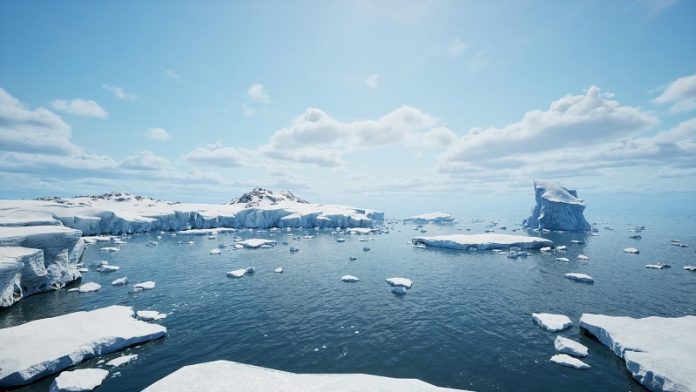
A major and unexpected change is happening in the Southern Ocean surrounding Antarctica.
Scientists have discovered that the ocean’s surface is becoming saltier and warmer, and at the same time, Antarctic sea ice is shrinking faster than ever before.
This surprising shift reverses a decades-long trend that had previously helped sea ice grow.
New research led by the University of Southampton has revealed that since 2015, Antarctica has lost sea ice equal to the size of Greenland.
This is considered the largest environmental change seen on Earth in recent decades.
The study, published in the Proceedings of the National Academy of Sciences, used satellite data and underwater robotic instruments to monitor the ocean in real-time.
For many years, the surface of the Southern Ocean was becoming fresher, with lower levels of salt due to melting ice and increased snowfall.
This fresh layer of water stayed on top of warmer, saltier deep water and helped sea ice form by acting as a protective barrier.
However, this trend has suddenly reversed. Surface waters are now saltier, and this change is allowing heat from the deep ocean to rise more easily, melting sea ice from below.
Dr. Alessandro Silvano, who led the study, explained that this new “saltier surface water” creates a dangerous feedback loop. Less sea ice allows more ocean heat to escape, which melts even more ice. One clear sign of this change is the return of the Maud Rise polynya in the Weddell Sea—a massive open hole in the sea ice, four times the size of Wales, which hadn’t been seen since the 1970s.
This shift is not only a local concern. The changes in the Southern Ocean are already affecting the planet as a whole. With less sea ice to reflect sunlight, more solar heat is absorbed by the ocean, which can contribute to stronger storms, warmer global temperatures, and the loss of habitats for penguins and other Antarctic animals.
Scientists are especially concerned because previous climate models had predicted a different outcome. They had expected the Southern Ocean to stay fresher on the surface and to support long-lasting sea ice coverage for years to come. But the new findings suggest that the ocean system is changing much faster and in unexpected ways.
Aditya Narayanan, a co-author of the study, said this rapid sea ice loss could speed up global warming.
Professor Alberto Naveira Garabato added that this highlights how much we still need to learn and how important it is to continue monitoring the Southern Ocean closely in order to better understand and predict future changes.



